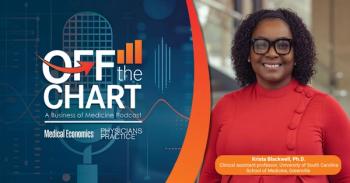
Don't Assume Your Patients Know Medicine
You might think a medical issue is widely understood, but for many patients, they won't know what you're talking about.
Just when I think I've heard it all. The wife of a patient who has been on insulin for years called last week to inform me that he recently started injecting his insulin into his finger and checking his blood sugar on his abdomen, instead of the other way around. Granted, he's had a lot of memory issues lately, but I've learned not to overestimate what people know.
I've had patients have persistently high glucose levels despite repeatedly increasing their insulin doses only to find that they never took the cap off the needle. So in effect, they never got any insulin. Or, instead of pushing the button on the end of the insulin pen, they dialed the knob in the opposite direction, so again, no insulin administered. I also have patients who have had diabetes for 30 years, and swear they know all there is to know, and don't understand why recently their readings are so much worse and it seems like the insulin doesn't work anymore. Only to discover that they are injecting in the same spot over and over because "it doesn't hurt there anymore". Well, it doesn't hurt because it's all scar tissue, so you won't absorb insulin there anymore.
And it's not limited to people with diabetes or insulin. One colleague tells me of a patient whom she had been seeing for years. One day he announced that he and his wife were planning on trying to conceive and asked what his sperm count was. She said he would have to do a semen analysis. He said, " After all the blood tests I've had done, you can't tell what my sperm count is?"
Several years ago, when I still practiced some general internal medicine, I had seen a patient whose right side of her face had practically been eaten away by skin cancer (you could see her molars through what was left of her cheek). "It didn't hurt, so I figured it wasn't anything bad". When asked why she was in the ER, she said "I'm supposed to go to a wedding today, but now this is bleeding".
And it doesn't matter how educated or wealthy someone is either. And to be fair, you can't ask me about law or accounting. That's why I hire people.
So my point is, do not assume that patients know what we know about medicine. What seems common sense to physicians is not necessarily so to others.
Newsletter
Optimize your practice with the Physicians Practice newsletter, offering management pearls, leadership tips, and business strategies tailored for practice administrators and physicians of any specialty.








